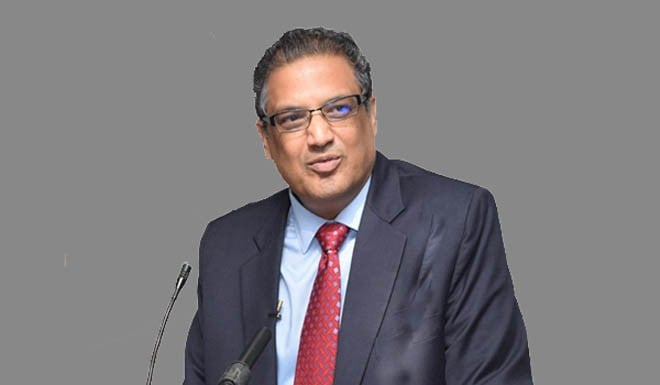
Suhail Warraich is a senior political analyst

The News on Sunday: Why, in your opinion, the political situation has come to this pass for the PML-N? Could the situation be handled in a different way?
Suhail Warraich: The PML-N had adopted a laid-back approach on the issue of Panama leaks. They should have countered the Panama issue with their own narrative, with raising the awareness of the general public, as did Imran Khan, and with bringing up the kind of evidence that was required to prove their point. They didn’t do that. And this, I think, is their basic fault.
Having said that, we should also understand that when someone, who happens to be affluent, is facing this kind of investigation, he finds himself in a fix over which piece of information to share with the courts and which information to retain. Because he knows that one wrong move would land him in trouble, opening up new set of problems. So, this can be one reason for the Prime Minister for being reluctant to share critical information with the courts. I can remember the times when Benazir Bhutto was facing the cases in courts. She would also think twice before disclosing a piece of information, especially the one which might lead to opening of new cases against her.
TNS: In view of the political uncertainty at the moment, do you foresee divisions within the PML-N? Is the party leadership at one page on how to deal with the crisis?
SW: I don’t think there’s possibility of a rift going on within the PML-N leadership at the moment. The party has been in power for quite some time now. It has so many experienced ministers, perhaps more than in any other party. So, I think it is reading too much into the problem at hand. But I think once, and if, the party’s leader, Prime Minister Nawaz Sharif, is disqualified, then the party has no future. And until it happens, the party has no threat of disintegration from within.
TNS: Given the possible scenarios that you’ve painted, does the PTI as a party, have a strong organisational structure to sweep the next elections and form government at the Centre?
SW: With Nawaz Sharif not in the picture, it will be a very different situation. It will be a political wave in favour of Imran Khan and the PTI. But if Nawaz Sharif remains in his place, there will be not much left for the PTI in the political arena. If the case is referred to NAB it will be a win-win situation for Nawaz Sharif. But if he is disqualified, it will be a difficult situation for the PML-N as a forward bloc of the party maybe formed and differences will emerge within the party. Some members will leave the party as well.
TNS: How do you see the impact of the Prime Minister’s possible disqualification on the voters of the PML-N?
SW: PML-N’s voters will be disillusioned in case Nawaz Sharif is disqualified by the SC. I don’t think that the PML-N will have a future in that case. But if he is disqualified by the lower courts, he will have the right to appeal. The party’s voter is the middle class businessmen. He does not believe in participating in protests and rallies as do the voters of the PPP. A PML-N’s voter only steps out to vote for the PML-N. They don’t even have many supporters to run their election campaign as do the PPP’s. If a political rally is announced tomorrow, PML-N’s voters are not likely to respond to the call and come out on the roads as the voters of the PTI and PPP do.
Read also: The curtain’s drawn
TNS: Is it a correct perception of the PML-N that they are facing a media trial?
SW: To some extent, yes; because it is not possible that the JIT is doing all this on its own. There may be some powers behind it. And media could be partly one of those powers. When the society is divided on an issue, the media has to take sides. In fact the media remains divided in this way all over the world -- some part of it takes up the government’s stance while the rest is against the government. In fact, more than the media, our institutions remain divided.
TNS: At this moment in time, how relevant is the notion that accountability should be across the board and not targeted against just one person, family, or party?
SW: Definitely, it should be across the board. They have tracked down documents relating to Nawaz Shairf since 1972 and have acquired minute details of their businesses. So, this process of accountability should not end here. PPP has also undergone strict accountability in the past. We have the example of Benazir Bhutto who faced courts.
Now we don’t know how Imran Khan’s accountability will be done. But in Pakistan, we have only held politicians accountable so far. No generals, judges, or journalists have been held accountable. The reason for this is that we, the middle class, only see politicians as scapegoats. I would stress that it should be across the board. For example, I should also be open to accountability as I sit here criticising others. There should be no holy cows when it comes to accountability.
TNS: Is there still a way out for Nawaz Sharif or is it all over for him?
SW: The only way out for him in my view is going to the people’s court. Nawaz Sharif should put his case before the people. Zulfikar Ali Bhutto went to his voters and told them he drinks alcohol and his people accepted that. So, the ultimate court is the people’s court.